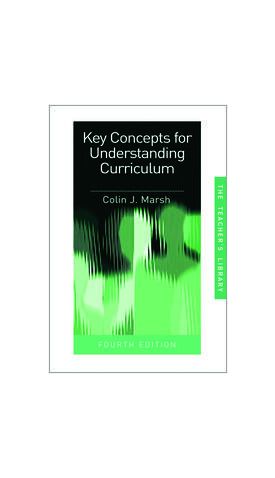אנו משתמשים ב-Cookies כדי לשפר את החוויה שלך. כדי לקיים ההנחיה החדשה של e-Privacy, עלינו לבקש את הסכמתך להגדיר את ה-Cookies. קבלת מידע נוסף.
KEY CONCEPTS FOR UNDERSTANDING CURRICULUM 4 ; 4
Key Concepts for Understanding Curriculum is an invaluable guide for all involved in curriculum matters. Now fully updated, this revised and enlarged fourth edition provides not only a solid grounding in the subject but also covers the latest trends and issues affecting the field. Written in Marsh's clear and accessible style, the book details the strengths, weaknesses and controversies around major concepts in curriculum, including
- curriculum planning and development
- curriculum management
- teaching perspectives
- collaborative involvement in curriculum
- curriculum ideology.
Now updated with new chapters on curriculum models, school-based curriculum development, learning studies, ICT developments in assessment, the new edition includes extra detail on standards and essential learning factors that have recently been introduced in a number of countries, including the UK, USA and Australia.
This up-to-date edition of a definitive text will be essential reading for anyone involved in curriculum planning or development. It will be especially useful to students training to be teachers, and practising teachers following professional development programmes.
| מהדורה | 4 |
|---|---|
| עמודים / Pages | 368 |
| הוצאה לאור | Routledge |
| תאריך יציאה לאור | 2 בינו׳ 2009 |
| תוכן עניינים | Part 1: Introduction 1.What is Curriculum 2. Introducing Key Concepts Part 2: Curriculum Planning and Development 3. Using Curriculum Models as a ‘Planning Tool’ 4. Curriculum Frameworks 5. Objectives, Learning Outcomes and Standards 6. Selecting and Organising Teaching and Learning Modes 7. Assessment, Grading and Reporting 8. Curriculum Implementation Part 3: Curriculum Management 9. Innovation and Planned Change 10. Leadership and Management and the School Head / Principal 11. School-Based Curriculum Development 12. School Evaluations / Reviews 13. Curriculum Reform Part 4: Teaching Perspectives 14. Learning Environments 15. Teacher Appraisal Part 5: Collaborative Involvement in Curriculum 16. Decision-Makers, Stakeholders and Influences 17. Teachers as Researchers: Action Research and Lesson Study 18. Parent – Teacher Participation Part 6: Curriculum Ideology 19. Curriculum Theorizing 20. Gender, Sexuality and the Curriculum 21. Postmodernism and the Curriculum
|
| Author | Colin Marsh |


Login and Registration Form